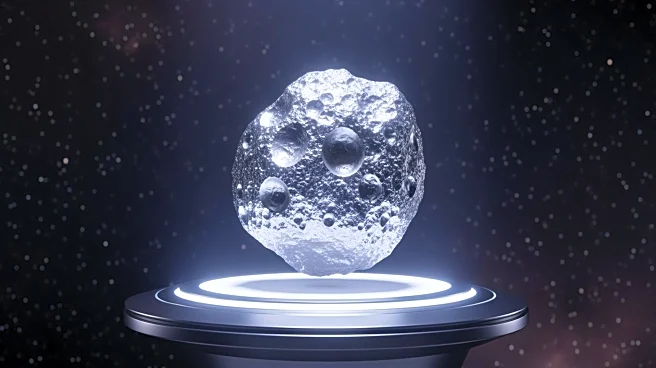What's Happening?
Recent findings from NASA and Japan's space agency have reignited interest in the panspermia theory, which suggests that life on Earth may have originated from space. Researchers have discovered carbon,
ammonia, salts, and amino acids in asteroid samples, supporting the idea that these building blocks of life could have been delivered to Earth via space rocks. The theory gained traction after NASA's OSIRIS-REx mission found 14 amino acids and chemical precursors of DNA and RNA in samples from the asteroid Bennu. This discovery challenges the traditional view that life began solely on Earth, suggesting instead that the ingredients for life might have been brought here from elsewhere in the solar system.
Why It's Important?
The panspermia theory has significant implications for our understanding of life's origins and the potential for life elsewhere in the universe. If life on Earth was seeded by extraterrestrial materials, it raises the possibility that similar processes could occur on other planets, potentially leading to life beyond Earth. This could impact future space exploration missions, as scientists may prioritize searching for life on planets and moons with conditions similar to early Earth. Additionally, understanding the distribution of life's building blocks across the solar system could inform the search for habitable environments and guide the development of astrobiology as a scientific discipline.
What's Next?
Further research and analysis of asteroid samples are expected to continue, with scientists aiming to identify more complex organic molecules and understand the conditions that could lead to life. Missions like NASA's OSIRIS-REx and Japan's Hayabusa2 will play a crucial role in providing more data. The scientific community may also explore the possibility of interstellar panspermia, where life or its precursors could travel between star systems. This could lead to new missions focused on detecting and analyzing interstellar objects that might carry organic compounds.
Beyond the Headlines
The panspermia theory also touches on philosophical and ethical questions about humanity's place in the universe. If life is a common occurrence across the cosmos, it could challenge the notion of Earth's uniqueness and prompt discussions about the implications for human identity and our responsibility to protect life on our planet and beyond. Additionally, the theory could influence cultural narratives and inspire new stories in science fiction, exploring themes of interconnectedness and the cosmic origins of life.











